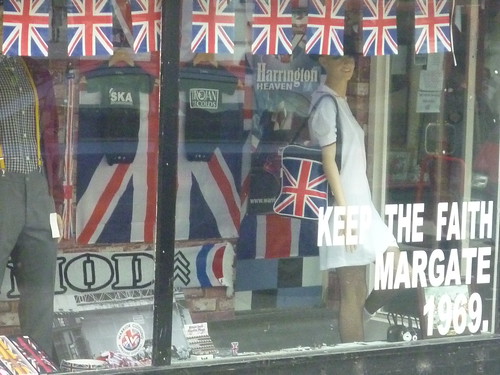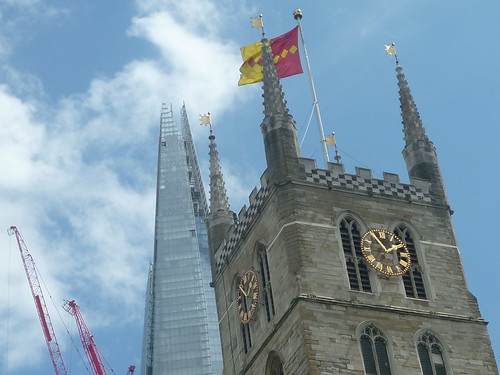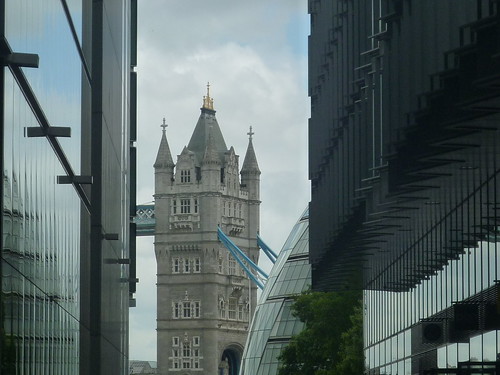
Wednesday, June 20, 2012
Citizens, Not Subjects

What does it mean to be British?
With the Olympics 38 days away, I've never felt less of an affinity to the country I was born in. I may be British by geography, and culturally I am very British – whatever British is – in many ways. But I don't belong in Britain. I remain, a stranger in my own country. What it means to be British, to me, in many ways, is to be tied to a set of opinions and preconceptions that have little to do with who I am in many ways. What does it mean to be British? To be repressed, opressed, and obsessed.
Are you ashamed or happy to be British?
I am indifferent to my national identity : it is a part of me as much as my shoe size or the colour of my eyes, but ultimately irrelevant. I am ashamed often, of what Britain has done politically, from Iraq, to the war against the disabled, the poor, of workfare, of bailing out banks, and a direct assault on everyone who isn't rich. But that is not Britain. Britishness is something different. I am proud of the rich cultural heritage Britain has created, but only in the same way that I am proud of the cultural produce of the whole of mankind, generally.
How do you see yourself?
I see myself for what I have created myself of myself, my own definition of my identity.Other people may see me in a certain light, or who they think I am, but that is a perception of a projection. I am who I made myself to be, the creature I wanted to be, as much as I could with the tools I have in life to self-define. Not everyone is born to be a king, or a leader.
We've been talking about the constituent parts of solidarity. But we live in a very divisive time. In the political narrative, you've got young versus old, squeezed middle versus alleged dole scroungers, country versus town. How can you create a story about solidarity when we're going through a really bad recession?
You can't. The only solidarity comes from fragmented unions of similar interests. The disabled band together. The rich band together. All to protect their own interests. These are no solidarity movements. Britain is, practically, two countries that exist within each other, similar to an airport being two buildings wrapped around each other.
How do you reconcile discussion of nationalism also implying a kind of superiority?
No nation is superior to anyone else. We are all products of our environments, and some are better than others. All nations have what we call good and bad people, and morality is ever shifting. Britain has some things that undoubtedly have culturally enriched the world – starting with Iron Maiden, Alan Turing and Stephen Fry for example – but also undoubtedly had a negative effect by providing the world Thatcher, Cameron, Phil Collins, and Danny Dyer. Recognising the strong and weak points of our national contribution would humble any jingoist. A flag doesn't mean anything anyway, other than assigning a sense of belonging to some arbitrary tribe that you are plaved in only by virtue of geography.
Would you argue that the countryside hasn't been championed very strongly?
Looking at population density, Oklahoma – which is the size of England – only has 4 million people in it. By this definition, Britain has a high population density, and discussion of the green and pleasant land is meaningless in any active sense given the density. Yes, Britain has some amazing countryside – and the cliffs of Dover, Beachy Head, and British seaside towns, alongside the rolling hills of Cumbria,and the Scottish mountains are staggering feats of the beauty of nature. But a field is a field. The world is full of them.
Class has been called the invisible prison that is also very much part of being British. What's your experience of class and how did that relate to your sense of identity?
Class has very much been redefined since the Seventies. In that time, working class was defined by housing and occupation : terraced houses in rows with narrow gardens and working in a factory that produced an object were very much for me the traditional working class definers. Where I grew up, the three main career options were to work at the now demolished car factory in a row putting a widget into a thing, or to put chocolate into a vat at the chocolate factory, or to be unemployed. At 16, many of the kids in my comprehensive school dropped out and got a job there, at a kings ransom of £125 a week. At an early age I realised that if you worked hard at school, you didn't have to work quite so hard at work in a physical sense. Everyone's life is hard work, the question is where that work is, be it physical or mental. With the death of industry and means of production to offshore, cheaper production methods, the UK has become a service factory, not a producer. In my world, if you have to work, you're working class. If you're one paycheck away from disaster, you're working class. You have to work. Middle class is just a gentrified name for working class, and I think calling yourself middle class is a act of obfusication : all it practically means is that your interior décor is probably a bit brighter, the house filled with a little less stuff, you might have a Blackberry for work, and you have an iPad. Class for me was something that was placed upon me without choice. My parents aspired to be middle class, but still worked in factories, working up from production line to back office. My identity is the element of me I chose, my class and nationality are those that were arbitraily assigned.
where does political responsibility lie? We've had politicians talking about 'broken Britain' for several years and that in itself must have an impact on a nation's morale and sense of what it can achieve.

Political responsibility lies with politicians. They seem to forget that each human being is running the business of their life, and we all must eat, work, sleep. The chocies that are made in our lives are often cases of choosing relative degrees of sacrifice, in so much as one hand the message that “Britain is broken due to absent parents”, and at the same time “Go to work you feckless slackers”. The two are irreconcible unless you can take your kids to work. The 24 hour economy and working demands do not respect the need for a family life (which is, according to Theresa May, not an absolute right anymore), or for conventional schooling structure. Child care is absurdly expensive. This government have excerbated a perfect storm of societal and work circumstances from a crisis into a disaster. When the population are treated like animals and cattle and blamed for being victims of circumstances they cannot control, there will be resentment at a transference of blame. The rioters were no more venal rank criminals than the fianncial instruments that brought destruction onto the nation : if anything less so, as they were the products of circumstances created by the latter. We live in an economically brutalised society and thus, this reduces human innate goodness to a more basic level of inconsiderate survival. Politicians failure to regulate and control the excesses of capitalism are the root cause of this.
somebody said that you can have solidarity without diversity but you can't have diversity without solidarity. If you have a multicultural society, what does that mean for national identity? Some could argue that multiculturalism can be dangerous for the rights of women, children and homosexuals.
Britain is multicultural whether you like it or not. Any attempt to homogenise reality will fail. There are many different interpretations of what is moral, and not, between humans brought up in identical environments, let alone disparate ones. Multiculturalism without controls can be dangerous – as can monoculturalism. The right to belief ends when it contains the belief to oppress others. Oppressing a belief that wishes to oppress others is not an oppression, but a protection. There are values that Britain allays itself to, but what we have seen recently is a Britain of changing values. Where did people vote for the disabled and chronically ill committing suicide rather than face poverty and deprivation? Where did Britain see it as more important to service a debt than the people? This is the kind of multiculturalism that is dangerous, and it is practiced by people who are ostensibily of the same cloth : as dangerous at least, as other, more visible denials of equal human rights. This government denies that there are absolute human rights, and sees human rights as a barrier to the fallacy of competition. No sane human being wants to be in perpetual competition with every other human being, but living in a world where all other humans are maintained in a state of relative basic needs being met. So yes, multiculturalism without controls is a danger to all humans, and capitalism, or any other religion is dangerous if uncontrolled. There are limits to the acceptable actions that underpin a belief. All human beings are free to think whatever we like, however, our actions must consider our role in the unified ecosystem that is reality.
a Britain of resilience and assets – is that the modern story of British identity that politicians should be giving us?
The story of British identity politicans should be giving one is one that reflects and represents the world almost all of us live on : a world of being one salary from disaster. And that, in one of the richest countries in the world, is not a morally acceptable position to be proud of, a nation of economic slaves.
We've got the naturalisation test; in 2006 we had the duty to integrate. What's the balance between integration and holding fast to your own customs and traditions?
I would have failed the naturalisation test. As indeed, would almost every British person. Integration – as with anyone irrespective of their national or cultural identity – involves adapting your actions to the environment you are living in to co-exist harmoniously with the world and the inhabitants around you. When customs and traditions are incompatable with your environment, either change yourself, or change your location.
Finally, as long as we have a royal family we are subjects, we're not citizens. And some people would argue that if you sort out the citizenship side this would help to forge a new kind of British identity that's more in keeping with the 21st century.
I'm no one's fucking subject. No one owns me. I am no one's property. I belong to myself, and myself only.

